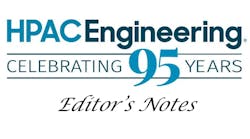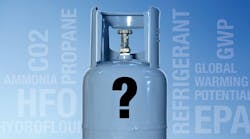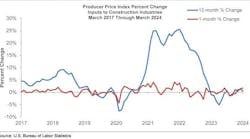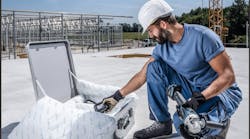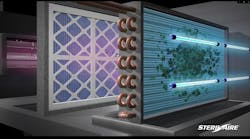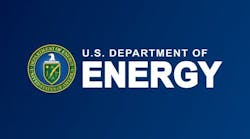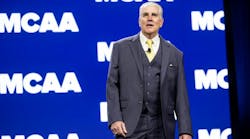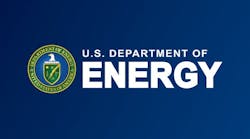PRESS RELEASE
WASHINGTON, DC, January 8, 2024 — The U.S. Department of Energy (DOE) today announced that four additional heat pump manufacturers successfully produced heat pump prototypes as part of the Residential Cold Climate Heat Pump (CCHP) Technology Challenge, a DOE initiative to accelerate the deployment of heat pump technologies by supporting innovation and manufacturing.
Launched in 2021, this initiative brings together public and private sector stakeholders to address technical challenges and market barriers to adopting next-generation cold-climate heat pumps—a key clean energy technology that can potentially save households $500 a year or more on their utility bills while also slashing harmful carbon emissions. The Challenge specifies that prototypes deliver 100% heating capacity without the use of auxiliary heat and with significantly higher efficiencies at 5 deg. F.
Through the Challenge, DOE is working together with industry to accelerate widespread commercialization of efficient cold-climate electric heat pumps, which can provide clean heating and cooling for millions of American families and help meet President Biden’s goal of 100% carbon pollution-free electricity by 2035 and a net-zero carbon economy by 2050.
“Deploying next-generation technologies like heat pumps is critical to the Biden-Harris Administration’s efforts to ensure that Americans have access to more affordable clean heating and cooling options—no matter where they live,” said U.S. Secretary of Energy Jennifer M. Granholm. “By supporting industry advancements, DOE’s Cold-Climate Heat Pump Challenge is helping get cost-effective clean energy technology into homes across America—keeping families warm during the coldest months and saving them money.”
Heating and cooling buildings, homes, offices, schools, hospitals, military bases, and other critical facilities contribute to more than 35% of all U.S. energy consumption, driving carbon emissions that fuel climate change, jeopardize public health, and pollute local ecosystems. Heat pumps efficiently provide comfortable temperatures for heating and cooling homes and businesses in all climates, especially when homes are well insulated, and can also provide more efficient water heating.
Unlike heaters that run on natural gas or heating oil, heat pump technology uses only electricity to extract heat from the air to heat and cool buildings and, when compared to gas boilers, heat pumps reduce on-site greenhouse gas emissions by up to 50%.
Bosch, Daikin, Midea, and Johnson Controls will join previously announced partners Lennox International, Carrier, Trane Technologies, and Rheem in the next phase of the Challenge, which is expected to involve the installation and monitoring of more than 23 prototypes in various cold-climate locations throughout the U.S. and Canada over the next year.
With eight manufacturing partners successfully passing the laboratory testing stage in the Challenge, DOE is now turning to the nearly 30 state, utility, and other partners that were part of the original Challenge commitments to encourage the adoption of CCHPs. DOE will continue to work with partners to develop programs, incentives, education and outreach campaigns that help consumers better understand the benefits of these new designs.
Electric heat pumps enable more American families and businesses to benefit from lower energy costs through American-made clean energy technologies, while supporting good jobs, reinvigorating American manufacturing, improving public health, and tackling climate change. Additional savings are currently available through President Biden’s Inflation Reduction Act’s Energy Efficient Tax Credit 25C tax credits, which helps consumers afford heat pumps.
To learn more about savings and how heat pumps work, visit Pump Up Your Savings with Heat Pumps or DOE’s Energy Savings Hub—an easy-to-use online resource consumers can use to access the cost-saving benefits of President Biden’s Investing in America agenda.
The Residential CCHP Technology Challenge is part of the Initiative for Better Energy, Emissions, and Equity (E3 Initiative) run by DOE’s Building Technologies Office in the Office of Energy Efficiency and Renewable Energy. DOE is partnering with the U.S. Environmental Protection Agency and Natural Resources Canada on this effort.
###
